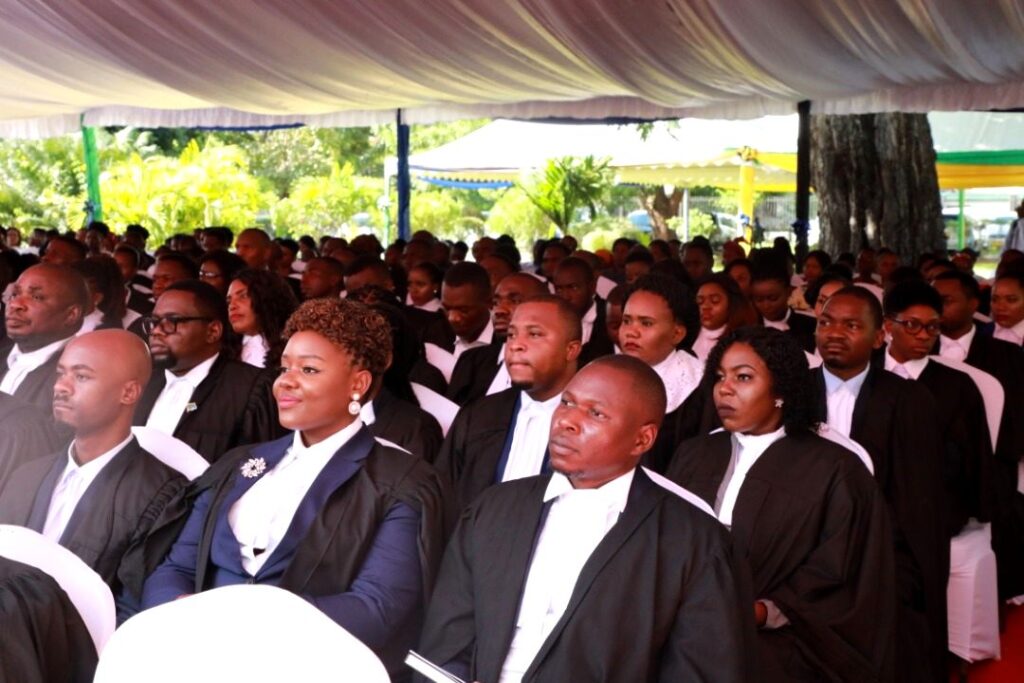
Executive and Judiciary Agree to the Use of Kiswahili in Tanzania’s Legal System
The executive and the judiciary have agreed to fully switch the country’s legal system and legal materials from English to Kiswahili language, a centenary since the establishment of the High Court in the country.
Vice-President Ms Samia Suluhu Hassan said that it was unjust to deny justice to a group of the citizens on the grounds of language barrier.
Speaking at the opening of this year’s Tanzania Legal Week and 100th anniversary of the High Court, Samia said rural residents are unaware of most of the legal process, thus limiting access to justice in their communities.
“We are waiting for the full implementation of this plan… Tanzania is an independent state and therefore, it is unfair for people to be denied justice because of language,” she said.
Ms Samia, who also launched seven guidelines for the judiciary which include management of evidence, enforcement of court orders and use of court services, demanded the judiciary to enhance access to justice systems.
She hailed the law interpreter for the transformation they attained during the past 100 years which includes recruiting 20 female judges for its high and referral courts.
“There are serious revolutions made in the judicial system. You have established strategic divisions, Land, Commercial, Labour and High Court Corruption and Economic Crimes Division,” she said, while emphasizing that the use of ICT has also helped the judiciary to match up with the digital world.
Chief Justice Prof Ibrahim Juma said the changes within the judiciary are in line with the Fourth Industrial Revolution that calls for transparency and efficiency in delivering justice.
He said the government had extended the broadband and is working to enhance its e-government that is pushing the court to adopt a fresh system that will help ‘wananchi’ to have access to justice.
Prof Juma acknowledged that the language barrier can obstruct the application of laws in a specific situation.
“We have conducted an assessment of the state records to establish what hindered the use of Kiswahili,” he said.
“Official government records show that efforts began when Telford Philip Georges was appointed Chief Justice between 1965 and 1971 to ensure Kiswahili is applied in all stages of the court.”
He said two committees were formed under the then Minister for Justice and the Minister for Education to write a Kiswahili Law Dictionary among other recommendations.

